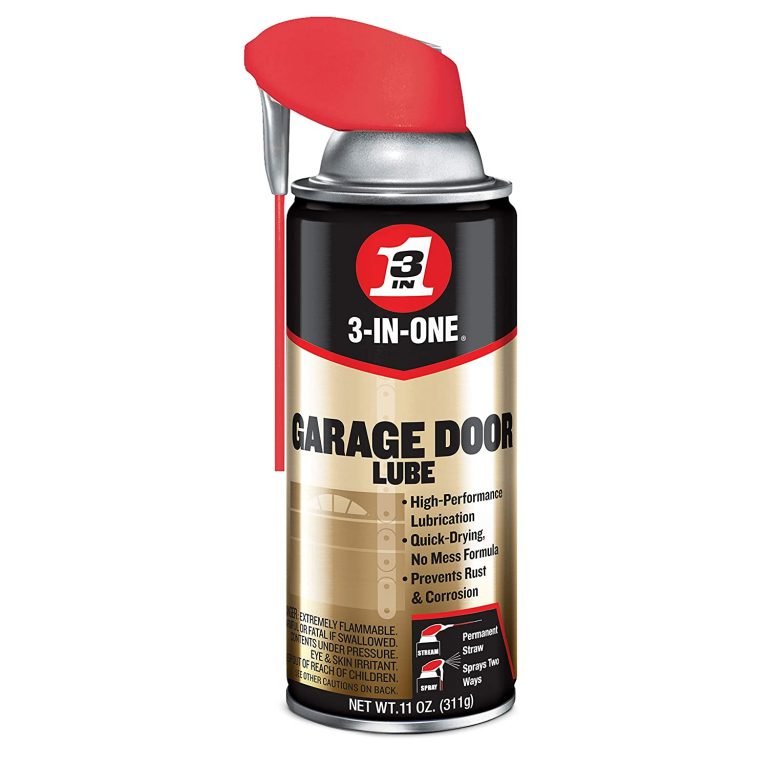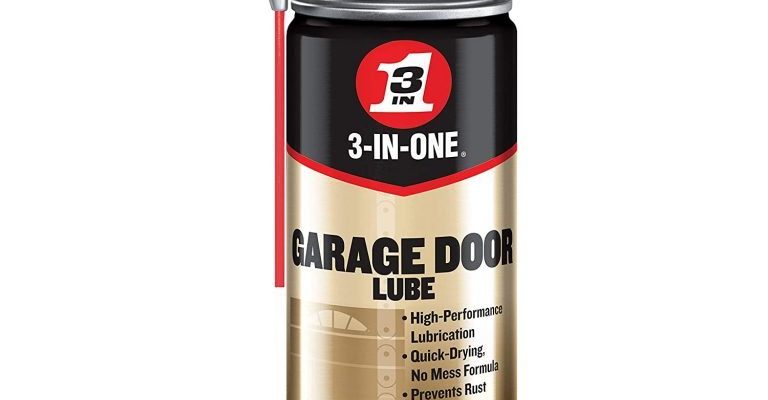
You might assume any old oil in the garage will do the trick, but for ball bearing hinges, it’s a whole different story. These hinges are designed to handle heavy doors and brave the elements, which means they demand a lubricant that’s tough, long-lasting, and safe for outdoor use. WD-40 might get you by in a pinch, but there are smarter choices if you want your door to swing smoothly for years.
Finding the *best lubricant for ball bearing exterior door hinges* isn’t just about squashing squeaks. It’s about keeping your doors secure, weather-resistant, and maintenance-free. With a few smart tips and the right product in hand—like 3-IN-ONE, Tri-Flow, or even a silicone spray—you can save yourself a lot of headaches down the road.
Why Ball Bearing Hinges Need Special Lubrication
Let me explain why not all lubricants are created equal when it comes to ball bearing exterior door hinges. These hinges have tiny ball bearings built into the knuckle. The bearings let the heavy door swing smoothly without wearing out the metal. But over time, dirt and weather can creep in, and the factory grease starts to wear off.
You might be wondering why you can’t just reach for the first thing in your tool kit. Well, general-purpose oils (like motor oil or cooking spray—yes, people have tried that!) aren’t designed to stay put. They drip, attract dust, or even wash away in the rain. Then, your hinges are right back to grinding and squeaking.
Outdoor hinges face more abuse than you’d think. Rain, humidity, freezing winters, and scorching summers all push lubricants to their limit. That’s why specialty lubricants are needed—ones with real staying power, water resistance, and rust protection. If you use the wrong product, you’ll likely end up cleaning up a mess and calling it “good enough,” only to revisit the same problem in a few weeks.
The best lubricants for ball bearing exterior door hinges aren’t just about eliminating noise. They protect the bearings (which you can’t even see inside the hinge), prevent rust, and keep things moving effortlessly. Making the right choice not only saves you work, but it also helps your doors last years longer.
Top Lubricant Types For Exterior Door Hinges
Here’s where the rubber meets the road. Not every lubricant you find on a hardware shelf will do the job for exterior ball bearing hinges. Some are just too thin; others gum things up. Let’s break down the three top contenders you’ll actually want on your shelf.
- Silicone Spray Lubricants: These are great for doors exposed to the elements. They don’t attract dust or dirt, and they won’t freeze up in cold weather. Silicone sprays are easy to apply and leave behind a slick, clear film. Just make sure to wipe off any extra to avoid sticky residue.
- PTFE (Teflon) Lubricants: Tri-Flow is a well-known example in this category. PTFE lubricants are thin, penetrate deep into the hinge, and create a slick barrier that resists water and corrosion. They usually come with a precision straw for easy application between tight hinge joints.
- Specialized Door Hinge Oils: Products like 3-IN-ONE Lock Dry Lube or Liquid Wrench offer oil blends designed specifically for hinges. They soak in fast, repel water, and offer long-term protection. These are great for older hinges that might be a bit rough already.
Honestly, any of these will beat WD-40 for long-term results. WD-40 is a water-displacer first, not a true lubricant, so it’s best kept for emergencies. If you want something truly set-and-forget, grab a proper door hinge lubricant, and your future self will thank you.
How To Apply Lubricant To Ball Bearing Exterior Door Hinges
You might think, “Can’t I just spray and go?” It’s tempting, but taking an extra minute makes a huge difference. Proper application helps the lubricant reach the ball bearings hidden inside the hinge, not just the outside where it wipes off.
Here’s what I’d do:
- Clean first. Wipe off dust, grime, or old grease from the hinge—inside and out. A cloth and some soapy water work fine. Let it dry.
- Apply the lubricant. Use a straw applicator if your product has one. Aim for the seam where the hinge pin sits—right where the rotation happens. A quick squirt is usually enough.
- Work the door. Open and close the door several times to work the lubricant into the bearings. You’ll likely hear the squeak fade away as you move.
- Wipe away excess. Any extra oil can drip or gather dust, so blot it gently with a paper towel.
If your hinge is really stubborn, you might need to remove the hinge pin (if possible) to clean and lubricate more thoroughly. Just be careful—the heavy door can shift fast if you pull too many pins at once.
Common Problems With Exterior Hinges—And How Lubricant Helps
Ball bearing exterior door hinges are built to last, but they’re still not immune to the elements. One of the main issues is rust. Once water sneaks into the hinge, it can corrode the ball bearings, making your door creak and stick—sometimes so badly you think it’s warped.
Lubrication solves more than just noise. Here’s the thing: a well-lubricated hinge does a lot of hidden work. It helps distribute the door’s weight, making it easier to open and close even if the door is heavy or out of alignment. It also keeps the hinge from wearing down or getting “sloppy”—that is, developing too much play so your door doesn’t close right.
You might be troubleshooting a door that’s suddenly stiff in cold weather or feels “grabby” every time it rains. That’s often because the lubricant (or lack of it) can’t handle temperature swings or moisture. Using a high-quality silicone or PTFE lubricant gives you year-round peace of mind—no matter what the weather throws at your house.
Choosing The Right Product For Your Needs
There are dozens of lubricants on the market—how do you know what to pick? Let me get straight to it. For heavy, high-traffic doors (think front doors or commercial entries), PTFE products like Tri-Flow give lasting protection and can handle repeated use. For family homes where you might have kids or pets, silicone sprays are favored since they dry clear and aren’t likely to stain or get tracked inside.
If your hinges are older, or you’re dealing with visible rust, a specialized hinge oil with some penetration power is best. Products like 3-IN-ONE Lock Dry Lube break up old grime while leaving behind a water-repellent barrier. And if you live in a super wet or coastal area, always check that your product says “waterproof” or “outdoor-safe”—some indoor lubes won’t cut it.
Here’s a quick comparison table for the most common types:
| Lubricant Type | Best For | Pros | Cons |
| Silicone Spray | General/Family Use | Clear, won’t attract dirt, easy to apply | Needs reapplication every 6–12 months |
| PTFE (Tri-Flow) | Heavy Use/Commercial Doors | Long-lasting, handles heavy loads | Can drip if over-applied |
| 3-IN-ONE Hinge Oil | Old/Rusty Hinges | Penetrates gunk, protects against rust | May leave slight oil residue |
Alternatives: When To Use Grease or Dry Lubes
Some people swear by lithium grease, especially for garage doors or massive exterior gates. Grease has staying power—it sticks around through rain and heat, making it a good option for rarely-used, oversized doors. But for average homes, grease is often overkill and can attract dust and grime.
Dry lubricants (like graphite powder) show up in some online troubleshooting guides. They *do* reduce friction, but aren’t ideal for exterior hinges. If they get wet, they can clump or wash away, leaving your hinge unprotected. Use dry lubes for locks or pocket doors, not your front entry.
If you’re pairing a brand new hinge with a fresh coat of paint, make sure your lubricant is paint-safe. Some sprays can discolor or soften fresh paint, so always read the label.
Maintenance Tips To Keep Hinges Quiet For Years
Here’s a secret: lubricating your ball bearing exterior door hinges isn’t just a one-and-done chore. To keep things running smoothly, set a reminder to reapply once or twice a year—ideally before winter and again in spring.
And a pro tip: check your hinge screws while you’re at it. Loose screws can make a door sag or rub against the frame, causing problems lubrication alone won’t solve. Tightening everything up first lets your lubricant do its job.
Keep your lubricant in a spot you’ll remember (like the garage shelf or cleaning closet) and label it “door hinges.” That way, you’re not rummaging for it when you hear the first groan of the season.
There’s nothing quite like the quiet satisfaction of a door that opens and closes without a sound. Think of it as the unsung hero of home comfort.
What To Avoid When Lubricating Door Hinges
It’s tempting to try household shortcuts—cooking oils, petroleum jelly, or even WD-40 in a pinch. But these quick fixes can create bigger problems. Most kitchen oils go rancid, turning sticky and smelly. Petroleum jelly, while thick, attracts dust like a magnet, which can grind down the bearings over time.
WD-40 is sometimes a “reset button” for stuck hinges, but it’s a short-term solution. It evaporates quickly and doesn’t protect ball bearings from future trouble. Always reach for a purpose-built lubricant. It might cost a few bucks more, but you’ll save yourself repeat visits to the same annoying task.
If you’ve got a “universal” lube in your garage, check the label and make sure it’s safe for metal, outdoor use, and compatible with your hinge material (steel, brass, etc). Some lubricants can damage painted or powder-coated finishes, causing more of a mess than you bargained for.
Closing Thoughts
Caring for your ball bearing exterior door hinges isn’t complicated, but it does reward a little attention and the right product. By choosing a high-quality lubricant—whether silicone spray, PTFE, or a specialized hinge oil—you’re setting yourself up for years of smooth, quiet entries and exits. It’s a small fix with a big payoff. Next time your door lets out a groan, you’ll know just what to reach for—and you’ll be ready to enjoy that satisfying, silent swing every time you come home.
